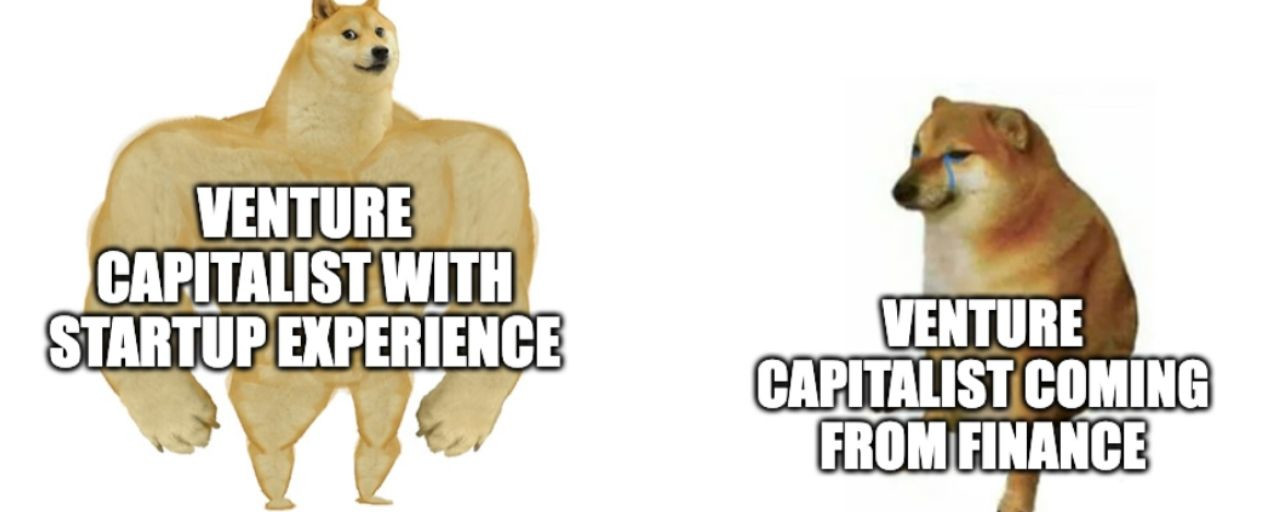In recent years, the venture capital ecosystem in Italy has undergone a significant transformation. This change has been driven by the emergence of various VC funds and other enablers that have helped create a fertile ground for startups and innovation. Traditionally, Italy has lagged behind other European countries in terms of venture capital activity. However, recent developments indicate a promising shift. The establishment of numerous VC funds, along with government initiatives and support from private investors, has stimulated growth in the sector. For instance, the number of active VC funds in Italy has increased from around 30 in 2015 to over 80 in 2023, with total investments reaching €1.8B+ in 2022, a significant rise from €600 million in 2017.
This new wave of liquidity has created a new class of fund managers, those who start their careers in the VC industry.
Working as a venture capitalist offers exciting opportunities but comes with its own set of challenges. This is especially true in the pre-seed and seed stages, where the role is fundamentally about understanding and evaluating people. Finding the next unicorn founder is our mission, and this can only be accomplished by building and nurturing a robust network of entrepreneurs, investors, and industry experts. VCs have the chance to work with a variety of innovative startups across different industries, and this involves cultivating relationships with key players in the entrepreneurial ecosystem. Effective networking is essential for sourcing the best deal, providing valuable support to portfolio companies, and sharing insights that can drive success.
Successful VCs need a combination of analytical skills, interpersonal capabilities, strategic thinking, and the ability to manage risks. They must be able to assess financial statements, market conditions, and business models to make informed investment decisions. Strong communication and relationship-building skills are essential to work effectively with entrepreneurs and co-investors. They need the capability to see the big picture and identify trends and opportunities in various industries, as well as the skill to evaluate and mitigate the risks associated with startup investments.
Despite the positive trends, a persistent challenge remains for many venture capital professionals: the lack of entrepreneurial experience. Many VCs come from backgrounds in finance, consulting, or academia and may not have firsthand experience in building and scaling a startup. This gap can sometimes hinder their ability to fully understand the intricacies and challenges faced by entrepreneurs. A survey conducted by the Italian Venture Capital Association (AIFI) revealed that only 25% of VC professionals in Italy have direct entrepreneurial experience. Moreover, while VCs provide capital and guidance, they do not have direct control over the day-to-day operations of the businesses they invest in, which can be a source of frustration for those accustomed to hands-on management.
A venture capitalist's role isn't just about making introductions or building a network; it's about having broad visibility into the market and anticipating challenges. While a solid network can be useful for finding key advisors or filling specialized roles, the true value an investor brings is their market insight and ability to foresee and address problems. Those who lack entrepreneurial experience need to be aware that they must work harder to cover a significant gap to build a competitive edge.
The venture capital industry is increasingly recognizing this issue – VC professionals need practical, hands-on experience in the startup world - and is introducing ways to fill this gap. This can take the form of operational roles within portfolio companies for some time, or even starting their own ventures. Through these immersions, VCs develop a deeper understanding of the startup journey, from the exciting highs to the gut-wrenching lows. This empathy translates into more meaningful support for founders, allowing VCs to provide guidance that truly resonates with the challenges faced. Ultimately, hands-on experience equips VCs to make informed investment decisions based on a holistic view of the company's potential, not just financial metrics.
However, not everyone aspires to be a startup founder. For those content in the role of investor, bridging the knowledge gap requires dedicated effort within their chosen market. This translates to developing a comprehensive understanding of the competitive landscape, industry fundamentals, and potential go-to-market strategies. By becoming a domain expert, VCs can evolve into thought leaders, challenging founders' assumptions and rigorously "stress-testing" their hypotheses. This rigorous approach pushes founders to refine their ideas, leading to a more robust and ultimately investable business model.
Another contributing factor to this issue is the focus of university career guidance. In many Italian universities, the most discussed career paths include traditional sectors such as banking, consulting, and corporate roles. This emphasis can limit students' awareness of and preparation for alternative career opportunities in the startup and venture capital worlds. According to a study by the Polytechnic University of Milan, only 15% of business school graduates in Italy are exposed to career opportunities in the startup ecosystem.
As a venture capital associate at IAG and Eden Ventures, I have developed the ability to identify the most promising founders, business models, and markets. Our exposure to numerous success and failure cases in startups provides us with a rich understanding of the factors that contribute to the growth or decline of a venture. This experience is invaluable when assessing many potential investments and supporting portfolio companies.
In conjunction with baby vc, we are working to launch the next generation of venture capital fund managers. Our aim is to provide aspiring VCs with the necessary tools, knowledge, and experiences to succeed in this evolving landscape. By fostering a new class of fund managers who are well-versed in both the theoretical and practical aspects of entrepreneurship, we hope to drive the next wave of innovation in Italy. Baby vc has already engaged over 200 aspiring VCs in its educational programs, aiming to bridge the gap between academic knowledge and practical industry skills.
To sum up, the Italian venture capital landscape is undergoing a metamorphosis, and the industry is recognizing the immense value of hands-on experience. Initiatives like operational roles within portfolio companies and even launching personal ventures are equipping VCs with a deeper understanding of the startup odyssey. This empathy fosters a more effective relationship between investor and founder, with guidance that resonates with the entrepreneur's struggles.
However, it’s important to recognize that not everyone needs to have been a founder to excel in venture capital. For those who thrive as investors, bridging the experience gap can be achieved through deep market expertise, rigorous analysis, and a proactive approach to learning. By developing a comprehensive understanding of their chosen market, becoming thought leaders, and effectively challenging and supporting founders, VCs without a background as founders can still add tremendous value. The key is dedication, continuous learning, and a genuine passion for the startup ecosystem. With these qualities, anyone can become a successful venture capitalist, driving innovation and growth in Italy's burgeoning startup scene.
Riccardo Vanelli, Associate @IAG | VP @Eden Ventures | board @baby vc | Finance Forbes U30








